Alles was Sie brauchen, auf einen Blick
Unsere Erkenntnisse sind detailliert und gut recherchiert. Sie behalten den Überblick darüber, was auf dem Markt passiert, und ermöglichen es Ihnen, der Konkurrenz immer einen Schritt voraus zu sein.
Sign up to our newsletter to get exclusive insights and never miss an article.

Mauricio only recently moved to Australia, he originally hails from Mexico and found his new opportunity on the Movemeon platform. Our team in APAC connected him with our client Axlewood Analytics where he started his new role as a Senior Strategy Consultant as part of the sustainability practice.
It's a great example of where Movemeon helped an overseas candidate to get their foot in the door in the Australian market.
Please tell us a little about your career so far. How did you find the move to Australia and finding a new role here? Any advice for other overseas candidates looking to make the move?
I've been in the strategy and consulting business for around 8 years now and I was always looking for a chance to move my career to Australia. In the beginning, looking for this change was a huge task but honestly, Movemeon helped me to tackle that fairly easy and I always had a reliable contact person throughout the entire process.
As for advice, I think what helped me was getting in touch with the Movemeon team, as good connections, expertise and professionalism are very helpful.
What excites you about the new opportunity as Senior Strategy Consultant at Axlewood Analytics?
It's a great challenge, it's helping to create this new sustainability and analytics consulting firm so it's very exciting and also it is clearly aligned with my idea of redirecting my career towards sustainability.
Axlewood Analytics is a management consulting firm for the Sustainability age. Axlewood provides Strategy and Transformation advisory in various areas of Sustainability such as Biodiversity, Circular economy, Decarbonization, Energy Transition and ESG. The business is part of 100 person CPM Group which is an independently-owned advisory and project management consultancy delivering value across the entire project lifecycle to governments, asset-owners and project owners in the infrastructure and building sectors.
Click here to view current opportunities at Axlewood on Movemeon!
How did you come across the role with Axlewood and what made you apply for it?
Melinda from the team in APAC reached me and gave me some info about the role, and the idea appealed to me very fast, so I quickly and easily applied through Movemeon.
In your opinion, how does Movemeon differ from other platforms/ agencies/ channels?
I hadn't really tried other agencies because I think they tend to be not so human but the contact with Movemeon was great! The team answered super fast and encouraged me through the application process.
Are you a candidate? Join Movemeon for free and get access to all opportunities!
Whether you are ready to hire through Movemeon or just looking for more information about hiring, one of our team of friendly specialists will get in touch within 24hrs.
[hubspot portal="25392842" id="24161966-77f0-499d-9230-0f71cee62bf7" type="form"]
Find out how other Movemeon candidates experienced and managed the change from consulting to industry in further interviews we published on our blog.

Last time, we discussed the first of three principles that I’ve found to be essential for building a high-performing team. In this article, we’ll cover principle #2.
1. Attract and hire the right people, then set them up for success.
2. Cultivate an inspiring culture that maximizes individual and team performance.
3. Demonstrate servant leadership daily.
Principle #2. Cultivate an inspiring culture that maximizes individual and team performance.
Establish a WHY and a HOW early on.
Simon Sinek has a simple but profound model for inspirational leadership which he calls the Golden Circle and which he details in his Ted Talk. When applied to my new team, I saw the “Why” as our vision and reason for being, the “How” as our team values (the way we would conduct ourselves), and the “What” as our projects and initiatives.
Once my key leaders were hired, I flew them out to division headquarters for several days for our first team meeting. Besides inviting my manager, our division President, and other leaders and collaborators to speak, I also scheduled time for us to brainstorm our Vision and Values. The facilitation deck included questions such as:
- What problems are you passionate about solving?
- What are your superpowers?
- How is what you’re doing making you better?
- List three specific contributions our team will make to the broader organization.
- List why those contributions are important to our stakeholders.
- How will others’ lives be different after they have interacted with our team?
The brainstorming process allowed us to get to know each other, as professionals and as people. We also discussed and debated the critical needs of the organization and how we could most effectively meet those needs. Sometimes, the dialogue became quite passionate as different perspectives emerged, but this was exactly the point. The Vision and Values statement that resulted from these conversations became our north star and served us numerous times when key decisions had to be made or when the going was hard. It gave us strategic intent, an identity we were proud of, and formed the foundation of our team culture.
Lean into the strengths of every team member while creating synergies.
I’m a believer that all of us can do more than what our titles indicate and that we each have untapped potential. Cultivating a culture of diversity, inclusion, and belonging requires embracing the unique strengths and potential that every member of the team brings and creating opportunities for them to grow and shine. For example, my team included leaders with titles like Director and Manager, but also Executive Assistant. In the case of the latter, instead of asking my executive assistant to focus exclusively on administrative responsibilities, I invited her to contribute in material ways to our team’s key initiatives. Of course, she demonstrated both the interest in and ability to do so. Early on, I informally retitled her to “Team Ninja / SWAT Lead” on our team’s presentation materials. It was a playful gesture but also an intentional signal to her and to others of her role and value on the team. We subsequently discussed her career trajectory and possible next roles based on her interests and strengths.
Cultivating an inclusive culture also means respecting the individual expertise of team members. My team was unique in that we had functional areas not typically found within the same organization and I was not a deep subject matter expert in these areas. Therefore, my role as a leader was often to ask insightful questions, provide the right guidance and guardrails, remove barriers, and champion the team while leaving the details to the experts.
Additionally, because I had a bigger picture lens on the business, I identified opportunities for collaboration within the team so that despite seemingly disparate swim lanes, the cross-pollination made the efforts of each team member stronger than they otherwise would have been. As a result, my team felt valued, supported, and connected. A point of pride that we all share is how frequently colleagues across the company commented on the outsize impact of our team compared to our relatively small headcount.
Provide coaching and feedback with care and intentionality. Address issues quickly and fairly.
As leaders, we will all confront situations that require immediate feedback and course correction. For example, if a critical project was off-track or repeated conflict within the team was hindering morale and productivity, I have stepped in to provide redirection. These are delicate moments and I certainly have had my share of stumbles. However, by taking a caring and respectful approach that seeks to accurately understand the situation, assumes positive intent, and then provides direction so every member of the team be more successful, I’ve found that these challenging moments can become growth opportunities for the team – both individually and collectively.
Most of the time, however, we are not dealing with crises but helping our teams to perform at a higher level in their day-to-day which requires that we operate as coaches. I’ve grown significantly in this skillset over the past two years. Many leaders’ natural inclination, my own included, is to give advice based on our own experience or problem-solve when our team comes to us for help. But what I’ve found to be much more effective is taking an “inside out” approach that empowers team members by asking them to clarify what they’re trying to achieve, articulate the challenges they’re confronting, brainstorm their own solutions, and then own the path forward. A model I recommend is called GROW Coaching based on the expertise of Alan Fine, which I was introduced to by the leaders on my own team who are phenomenal coaches in their own right.
Summary
A high performing team is one in which team members are motivated to go the extra mile and where the whole is greater than the sum of the parts. This is only possible when there is an inspiring and healthy culture in place. Establishing a clear vision and values, maximizing on the potential of the team as individuals and as a unit, and creating a strong cadence of coaching and feedback are some key steps we can take as leaders to create a winning culture where those we lead consistently exceed expectations and deliver extraordinary impact.
Next time, we’ll discuss how demonstrating servant leadership daily is another critical factor in building a high performing team.
Author: Li Kehl
Whether you are ready to hire through Movemeon or just looking for more information about hiring, one of our team of friendly specialists will get in touch within 24hrs.
Are you a candidate? Join Movemeon for free.
[hubspot portal="25392842" id="519fa7a4-9f5d-4fc1-9cce-40d189b9a881" type="form"]

Mauricio only recently moved to Australia, he originally hails from Mexico and found his new opportunity on the Movemeon platform. Our team in APAC connected him with our client Axlewood Analytics where he started his new role as a Senior Strategy Consultant as part of the sustainability practice.
It's a great example of where Movemeon helped an overseas candidate to get their foot in the door in the Australian market.
Please tell us a little about your career so far. How did you find the move to Australia and finding a new role here? Any advice for other overseas candidates looking to make the move?
I've been in the strategy and consulting business for around 8 years now and I was always looking for a chance to move my career to Australia. In the beginning, looking for this change was a huge task but honestly, Movemeon helped me to tackle that fairly easy and I always had a reliable contact person throughout the entire process.
As for advice, I think what helped me was getting in touch with the Movemeon team, as good connections, expertise and professionalism are very helpful.
What excites you about the new opportunity as Senior Strategy Consultant at Axlewood Analytics?
It's a great challenge, it's helping to create this new sustainability and analytics consulting firm so it's very exciting and also it is clearly aligned with my idea of redirecting my career towards sustainability.
Axlewood Analytics is a management consulting firm for the Sustainability age. Axlewood provides Strategy and Transformation advisory in various areas of Sustainability such as Biodiversity, Circular economy, Decarbonization, Energy Transition and ESG. The business is part of 100 person CPM Group which is an independently-owned advisory and project management consultancy delivering value across the entire project lifecycle to governments, asset-owners and project owners in the infrastructure and building sectors.
Click here to view current opportunities at Axlewood on Movemeon!
How did you come across the role with Axlewood and what made you apply for it?
Melinda from the team in APAC reached me and gave me some info about the role, and the idea appealed to me very fast, so I quickly and easily applied through Movemeon.
In your opinion, how does Movemeon differ from other platforms/ agencies/ channels?
I hadn't really tried other agencies because I think they tend to be not so human but the contact with Movemeon was great! The team answered super fast and encouraged me through the application process.
Are you a candidate? Join Movemeon for free and get access to all opportunities!
Whether you are ready to hire through Movemeon or just looking for more information about hiring, one of our team of friendly specialists will get in touch within 24hrs.
[hubspot portal="25392842" id="24161966-77f0-499d-9230-0f71cee62bf7" type="form"]
Find out how other Movemeon candidates experienced and managed the change from consulting to industry in further interviews we published on our blog.

In previous posts, we discussed the first and second of three principles that I’ve found to be essential for building a high-performing team. This time, we’ll cover the last one.
1. Attract and hire the right people, then set them up for success.
2. Cultivate an inspiring culture that maximizes individual and team performance.
3. Demonstrate servant leadership daily.
Principle #3. Demonstrate servant leadership daily.
A famous incident in the Gospel of Mark involves two brothers, James and John, who ask Jesus for positions of power in God’s kingdom. In response, Jesus tells his team of twelve, including the two brothers, “Whoever wants to be a leader among you must be your servant and whoever wants to be first must become last.”
A leader who wants to build and sustain a high-performing team must put the team first. In practice, this can manifest in a myriad of ways. I will highlight a few from my experience.
Whether you are ready to hire, looking for more information about hiring or just want some advice, one of our team of friendly specialists will get in touch within 24hrs. Click here to contact us!
Help the team to shine.
I once had a great manager who gave me high visibility projects that put my strengths on display, even when they were areas of weakness for himself. He was not afraid of being outshined by me because he was confident in his own strengths, and he wanted the best for my career. Knowing this made me even more invested in doing great work for him.
As a leader, I have taken a similar approach. When a team member was invited to facilitate a discussion at our EVP’s staff meeting with her division Presidents (a big deal!), I helped him cut through the complexity of the topic to distill the overarching thrust and connect his key messages to larger themes in the organization. The discussion was a fruitful one and his star has since risen in the organization. In other instances when my direct reports have had major presentations to senior management, I have scheduled multiple dry runs so that when they did take center stage, they spoke with passion, confidence, and clarity. After one such occasion, a senior executive told me that my team member’s presentation was the most engaging during a multi-hour meeting.
Leaders foster not only high performance but also loyalty when we invest energy behind the scenes to help our people do their best work and get recognized for it. And when it is time for our team members to move on to bigger roles (because great leaders create more leaders), they will make the transition a smooth one. Because when we’ve got our team’s back, they will have ours too.
Be human.
Life is short. Those of us who work outside the home often spend more time with our colleagues than our families. As leaders, we can create environments where work relationships are transactional, or we can create more meaningful ones where our people feel a sense of connection and belonging. I choose the latter.
Below are some tactics that have worked for me:
- Respect that work isn’t and shouldn’t be our employees’ highest priority. This may seem counterproductive in an article about high-performing teams but here’s why it’s not. When leaders have hired the right people and set them up for success (article 1) and cultivated an inspiring culture (article 2), then recognizing what matters to our employees outside of work will only strengthen their commitment and performance. My team knows that health and family always come first. If there is an issue on either front, they know they can share openly with me, and I’ll work with the rest of the team to provide cover while they’re out. In one business book, the author writes that “you can’t create value at work when you’re destroying value at home.” If we want our employees
to create superior value at work, then we must support them in creating value in the rest of their lives.
- Model vulnerability. Performing at a high level requires leveraging strengths but also improving critical weaknesses that could undermine success. We can improve much faster if we share our goals with our manager and others on the team so they can help us. However, acknowledging weaknesses and seeking help are difficult to do unless the leader creates a psychologically safe environment. I have found that by being transparent about the things I’m working to improve (e.g., constructive feedback I’ve received, my leadership assessment scores), my team feels at greater liberty to do the same.
- Have fun and laugh frequently. Whether through surprise birthday celebrations over Zoom, quarterly team-building activities, or random injections of fun during all-hands meetings, my team has benefited so much from laughing together. Not too long after joining, a new employee sent me the following message: “GCE feels more like a family than a department. That is a direct testament to the culture you have put into place. I feel very lucky to be in your org.” You can bet your bottom dollar that a team of people who feel lucky to be there will outperform a team that doesn’t.
Go to bat for the team.
Finally, I want to highlight that as servant leaders, there are times when we must fight for our teams. This can mean making a business case for additional funding so that our teams can deliver the level of impact required by the business, even when the financial climate is challenging. Or thoughtfully explaining a team member’s chosen approach to an influential colleague who disagrees but isn’t the subject matter expert on the topic at hand. A servant leader must always take a collaborative and positive approach within larger organizational dynamics. But she must also protect her team’s focus and morale, without which exceptional results are not possible.
Summary
Servant-leadership is a critical ingredient to building and sustaining high performing teams. It can take a variety of forms, whether putting in the elbow grease to help our teams shine, creating an environment where they feel fully seen, or going to bat for them in the right way at the right time. This approach takes courage, confidence, and strength because there are sacrifices that must be made along the way. But does servant leadership create results we can be proud of? And is it worth it? YES and YES.
Thank you for reading this series on How to Build a High-Performing Team. If you’d like to continue the conversation, please find me on LinkedIn.
Author: Li Kehl
Interested in consulting-related insights and trends in addition to the exciting jobs on Movemeon?
Join over 32,000 people already following Movemeon co-founder Rich Rosser on LinkedIn for more insights about careers, how to get the most out of consulting and how to hire current or former consultants.

It’s not every day that leaders have an opportunity to build a team from scratch. I’ve been fortunate to do just this over the past two years and it has been one of the most rewarding experiences of my career. At Rich’s (Movemeon co-founder) invitation, I share below the 3 principles that I’ve found to be essential in building a high-performing team, each of which I’ll expand on in a separate post with examples from my experience:
1. Attract and hire the right people, then set them up for success.
2. Cultivate an inspiring culture that maximizes individual and team performance.
3. Demonstrate servant leadership daily.
Principle #1. Attract and hire the right people, then set them up for success.
Attract top-tier talent with an authentic and compelling narrative.
More than ever, employees are looking for a compelling “why” to take on a new role in a new organization. The story of where the organization has been, where we are now, where we’re going, and how they will contribute and grow should be clear every step of the way.
I learned early in my career when I worked in innovation consulting that documents shouldn’t be boring, especially job descriptions. When I crafted the JDs for the open roles on my team with HR and Talent Acquisition, we intentionally included “conversational” language that gave candidates a tangible sense of the team, the role, the type of person we were looking for, and our excitement and passion.
Candidates must also hear a consistent, authentic narrative from each person that they interact with. At the beginning of the recruiting process, my recruiter and I discussed the “why”, the “how”, and the “what” for each role so that she could be an excellent partner as she screened and communicated with candidates.
Identify the right person for the job with a robust interview process.
Once there’s a slate of great candidates, it’s time for the interview and selection process.
Drawing on my experience as a management consultant, I have always utilized case interviews when hiring. The case consisted of a real business challenge the role would tackle and a set of questions for the candidates to address. Candidates then gave a presentation to a cross-functional interview panel. Finally, interviewers scored candidates with a clear rubric for their assessments.
The case interview approach has multiple benefits:
- Allows candidates to demonstrate how they truly think, work, and communicate. One candidate who joined my team showed extraordinary initiative by reaching out to 20+ employees on Linkedin and including the results of his interviews with them in his presentation. Another team member was hired in large part because he impressed us with the depth and thoughtfulness of his presentation as well as how he responded to questions. In my experience, a case interview allows the hiring team to learn far more about candidates than a series of 30-45min “behavioral” interviews alone.
- Gives candidates a sense of the work they’ll be responsible for. Candidates can determine if the type of challenge being presented during the case interview is something they are excited to work on. Additionally, case interviews can eliminate those who are not seriously considering the role. For example, one candidate had reservations about leaving his current role and did not have time for the case interview. He withdrew his candidacy, and I was grateful for his honesty.
- Enables robust discussion among the interview panel. It’s important for the stakeholders and collaborators on the interview panel to have a front-row seat to what each candidate brings to the table. During the debrief conversations for my open roles, my interview panel and I could dialogue with specificity on the strengths and weaknesses we observed.
Are you looking for a new opportunity? View all jobs on Movemeon here!
Create a strategic onboarding experience with clear expectations.
After the top candidate accepts the offer (hooray!), setting them up for success is key.
I developed 30-60-90 day onboarding plans for my direct reports and asked them to do the same for anyone they hired. On a new team member’s first day, we discussed this onboarding plan together and I invited them to share feedback, including any elements they wanted to add. While this onboarding plan certainly included the standard tactical elements to get them up and running (e.g., technology, mandatory trainings), far more important were the elements specific to their role. For example, my direct reports were all hired into relatively senior and strategic roles. Therefore, I asked them to focus their early days on relationship-building, learning, and assessing the current-state. I also asked them to not jump into the weeds of day- to-day problem solving and firefighting despite pressure from others in the organization.
At the 60-day mark, a key milestone was for my team members to share their observations, analyses, recommendations, and go-forward plan. While we had discussed their top 3 priorities early on (which had been blessed by my manager), these 60-day conversations gave my team members an opportunity to voice valuable fresh perspectives as well as shape their own activities based on business needs and nuances they had independently uncovered.
Summary
In short, building a high-performing team starts with the people we bring onboard. As leaders, it’s our responsibility to articulate a powerful vision that attracts the right types of people, put processes in place to ensure we hire the best talent, and empower and equip our people from the very beginning so they can shine.
Next time, we’ll discuss how to cultivate an inspiring culture that maximizes both individual and team performance. As we all know, culture eats strategy (and anything else) for breakfast.
Author: Li Kehl
Whether you are ready to hire through Movemeon or just looking for more information about hiring, one of our team of friendly specialists will get in touch within 24hrs.
Are you a candidate? Join Movemeon for free.
[hubspot portal="25392842" id="519fa7a4-9f5d-4fc1-9cce-40d189b9a881" type="form"]

Movemeon recently supported Nicholas See's move into an exciting new position as a Strategy & Operations Specialist with one of Australia’s most iconic airlines, Virgin Australia.
We spoke to him about his career path, from consulting to Virgin Australia, and what he particularly likes about his new role as Strategy and Operations Specialist.
Movemeon co-founder Rich regularly shares exciting insights about careers after consulting, how to get the most out of consulting, how to hire current or former consultants and a lot more. Subscribe to his monthly newsletter or join his 32,000+ followers on LinkedIn.
Please tell us a little about your career so far? How did you find the transition from consulting into industry? Do you have any advice for candidates looking to exit consulting?
I started my career as a grad at KPMG, working in audit and transitioned to risk consulting. After a few years in consulting I was itching to get into the startup space and came across a role at Deliveroo. I spent just over 4 years there and then unfortunately they decided to exit the Australian market late in 2022.
The transition from consulting to industry was interesting, as you will only ever dedicate your time to one company compared to several. However there is still plenty of variety and different areas of the business to focus on.
My advice would be to obtain exposure to as many industries as possible prior to making the jump. As it is the perfect place to trial what you might like and don’t.
Are you also looking for an exciting new opportunity? Check out all jobs we currently have on Movemeon.
And so tell us about the new role! What excites you about the new opportunity as Strategy & Operations Specialist at Virgin Australia?
With the backing of Bain Capital, Virgin Australia is going through a major transformational phase at the moment. This is an exciting opportunity for me to use my management consulting skill-set, to provide support to both the Strategy and Insights Manager and the broader Small Medium Enterprise (SME) team.
The role is responsible for supporting identification and delivery of key growth opportunities, as well as supporting preparation of materials for senior leadership meetings, including board and ELT. I'll be working in the Virgin Business Flyer team. What excites me most about this role is gaining exposure to the loyalty program and the intricacies which come with creating and maintaining a successful program. I am an avid points collector myself!
How did you come across the role with Virgin Australia?
This role came up when I was initially setting up my profile on the Movemeon website. The posting definitely sparked my interest so I went ahead and applied. The process itself was speedy and streamlined, about 3 weeks from application to offer.
In your opinion, how does Movemeon differ from other platforms/ agencies/ channels?
Movemeon offers a far more efficient and personalised approach to job hunting for (ex)consultants. There isn’t a strenuous onboarding / application process to join either, very quick and easy. The filtering process for potential jobs is also easy to navigate and set up.
The icing on the cake is Movemeon's Success team, who are there supporting all the roles and making everything as painless as possible. They listen to your concerns and advocate on your behalf. I'd recommend Movemeon to anyone with a consulting background, even if they're not actively looking to move roles, as MMO make it easy to monitor the job market so you can jump on anything as soon as it pops up.
Find out how other Movemeon candidates experienced and managed the change from consulting to industry in further interviews we published on our blog.

Jonny Khan joined as one of our guests for the Youtube series 'Life after Consulting'. Jonny started his consulting career at Bain & Company, where he worked for three years. He used the consulting skillset he gained to work as a strategy in-house consultant at Nando's afterwards, before joining Deliveroo three years later in January 2020, where he is still working.
Movemeon Co-Founder Richard Rosser and Jonny talked about how it is to leave consulting, joining a tech scale-up, going through IPO and much more.
You can watch the whole video here as well!
https://www.youtube.com/watch?v=jcpSddvBZcE&t=1507s
To make sure you don't miss any of our videos in the future, you can subscribe to Rich's monthly newsletter and join the community of more than 70,000 people. He also shares exciting insights about careers after consulting, how to get the most out of consulting, how to hire current or former consultants and a lot more.
Jonny, let’s go back around 6-7 years to when you left Bain. What were your reasons for you to leave consulting at that time? Why was it the right time for you?
After one year in consulting, I already knew that I didn't want to do this forever. For me, it was a great start to begin my career and to gain the necessary and unique skillset, but also to meet the right people and build a network for everything that comes after.
In consulting, it is often the case that the career path is predetermined and predictable. Your main task is to advise other people. I personally enjoy doing and implementing things myself more than "just" advising other people on how they should do or implement things.
In terms of when I wanted to leave consulting, there wasn't an exact time or something that I wanted to have achieved before I would have considered a change. In my mind, it was always about 3-5 years that I wanted to work there. However, after three years there was this great job opportunity from Nando's, an internal strategy role where I could work globally and a company with a good culture.
This opportunity kind of pulled me out of consulting after three years and I knew this opportunity might only be available to me now, so I basically had to take that chance.
I think if this opportunity (or a similar one) hadn't come up unexpectedly, I probably wouldn't have left consulting at that point.
Are you also currently looking for a new opportunity? View all current jobs live on Movemeon here.
When you think about your first 2-3 months in your new job, what was the hardest thing about working for a company after your time in consulting?
I don't think it's usually the case that you get your dream job straight after consulting. Many consultants first go into in-house consulting, work as a financial analyst, chief of staff or similar. They gain experience there, build up trust, etc., and then move into roles that they can see themselves working in the long term.
I worked at Nando's in a classic strategy in-house role, so it wasn't too far from what I did before. I learned a lot, worked on interesting projects and with great people from whom I was able to learn a lot.
Looking back, I can think of two challenges that I faced at the beginning after moving from consulting to a company.
- As a consultant you have a great and important skillset, but you don't really have experience in functional areas unless you have specialised in them before. When I started at Nando's, I knew nothing about restaurants as a company. So there are a lot of things you don't know and you have to learn quickly to do a good job.
- The second point is usually only noticeable after a few months or 1-2 years. Your career progression in the industry is so much less obvious. In consulting it is more or less clear what your career path can look like, when you will be promoted and what your salary will be. That also gives you a sort of certainty and you often don't have that the same way in the industry.
When you joined Deliveroo three years ago, what was the growth like and how was it for you to work there in a time of rapid expansion?
I joined Deliveroo right before Covid, in January 2020 and it felt like Deliveroo was still in teenage years then. It was like working in a scale-up, but at the same time the company was big enough to have corporate responsibilities. Deliveroo was in transition and getting ready for an IPO, which they knew was probably going to happen within the next year.
Have you noticed a difference in terms of working and the environment at Deliveroo after the IPO?
We have tried to maintain the culture as much as possible, but of course with the IPO there are things that change, especially on a financial level.
You can't go on as fast and get decisions through as quickly as before because you now need approvals from the board. If you for example want to make a bigger decision or if you want to make financial plans for the year, it always has to go to the board and be approved by them, which can sometimes take a longer time than before.
However, due to the financial changes that come with the IPO, you can also do and achieve a lot more, which has been very positive for Deliveroo.
View all the jobs we currently have in start-ups and scale-ups here.
If you think back to your time when you started as an ex consultant at Deliveroo. For whom do you think the start-up world is suitable and for whom not? What do you need to bring with you?
I think it is definitely suitable for consultants with the right mindset. In a start-up there is often a lot of uncertainty and sometimes a lot of chaos. In consulting, there is also often this kind of uncertainty. You often don't know which project you will get or in which functionality and industry you'll be working. If you can handle that well, can work your way into things quickly, like to take responsibility and are willing to solve problems, a start-up can definitely be the right thing for you. However, that doesn't mean it is something for every consultant.
Which post consulting career option have you considered?
Jonny: As I mentioned briefly at the beginning, I wasn't really looking for a new opportunity at that time. However, I knew that I wanted to go in a more practical direction, do things myself and not just advise. I could imagine working in a start-up as well as in a corporate. One of the reasons why I chose the corporate world was that I had a little child at the time and my wife was on maternity leave. That's why I thought a corporate would be a better fit for me and my life at that time.
Rich: I would advise that when looking for a job after consulting, you should always ask yourself what is it that interests me, what gives me energy and motivation. Then, find out what roles suit me in that case. For example, if you like to do things, get things done and solve problems, a start-up or scale-up, a new business venture within a corporate or similar could definitely be something for you. A job in private equity might then not be the right fit.
Nevertheless, as Jonny has already said, the career path is a path and it is rare that you will find the top position directly after consulting. Going straight from A to Z within one job change isn't impossible but very uncommon.
Fancy a career change? Check out all current jobs live on Movemeon here.
Particularly in terms of hybrid companies like Deliveroo, what should you look out for and what might be the red flags to be aware of?
Jonny: It is important to understand what it is you want to do. Ask yourself, do I want to go with a high-growth company because I think it sounds cool or is there a specific reason? Do I want to work in that company in that stage of growth? Am I going to do what I want to do in that company or role? Also, in regards to the company, talk to as many people as possible who already work there to find out if that's what you're looking for.
A red flag for me to be aware of would be the company culture. In my opinion you should find out as much as you can about it beforehand. It's actually often one of the reasons why people leave a company in the end.
Rich: You also have to be aware that interview processes are kind of 2-way processes and I see a lot of candidates who are not really conscious of that. Once you have an offer, it is in your hands. Both the company and the candidate have then already gone through a long process that has cost money and time. They have interviewed many people and selected you. No company will withdraw the offer if you say, for example, that you would like to spend a day in the company and get to know the team, the culture etc. They will only be more impressed by you if you ask for such a chance.
Are you hiring for your team, looking for more information about hiring or just want some advice, one of our team of friendly specialists will get in touch within 24hrs. All you need to do is to fill out the form below.
Are you a candidate? Join Movemeon for free.
[hubspot portal="25392842" id="24161966-77f0-499d-9230-0f71cee62bf7" type="form"]
Find out how other Movemeon candidates experienced and managed the change from consulting to industry in other interviews that we have published on our blog.

We spoke to Raphaël Bouzy, who started his career at Bain and later founded his own company. With Movemeon he talks about his career path and experience in being a founder and a freelance consultant.
Let’s start with an elevator pitch of your exciting career so far.
I have over 15 years of International experience in consulting and entrepreneurship. I started as a consultant at Bain in London before moving to Hong Kong where I worked for an international advocacy firm which is one of the most influential financial lobbies in the world. It was quite an interesting time as I was working there during the 2008 global financial crisis when it was extremely hard to influence legislative actions that made necessary changes in the market. After that, I took a short break to travel around the world before moving to Singapore, where I've since been residing for over 10 years.
In Singapore, I joined Control Risks, a firm that focuses on political consulting, crisis management and fraud investigation. I specialised in pre-investment due diligence where the focus was on examining the reputation, track record and political connections of a company, its owners and the senior management, instead of analysing the company’s accounts or carrying out market research. In that way, it was quite different from a typical consulting firm.
After that, I founded my own company, Datarama, which was recognised as one of the top 100 most innovative RegTech companies in the world under my leadership. I exited in late 2021.
Currently, as a freelance consultant and advisor, I'm helping long-term clients with business politics, emerging markets strategy, ESG/sustainability, and corporate/digital transformation.
Do you think your experience in consulting was crucial in starting and successfully running your own business?
I wouldn’t say it was crucial, but it was definitely useful. There is really nothing that can prepare you to run your own company. As a founder, you'll be working on multiple things at the same time which are completely different, for example, you'll be preparing presentations for fundraising, while reviewing CVs for hiring and building the team, as well as wearing an accountant's hat to keep an eye on the numbers!
Consulting essentially develops your adapting skills. Often you have to solve problems in an area that you hardly have any knowledge about and hence are forced to learn things faster. In that sense, consulting experience was very useful. But at the end of the day, if you are a consultant and you want to be an entrepreneur, it's quite a big jump.
How did you get into freelancing / independent advisory? What advice would you give to consultants who are keen to do freelance work?
When I founded my company, I had to work 80 - 90 hours a week sometimes and therefore didn’t have the time or energy to do freelance work. I waited until I exited my startup to start working as a freelancer. It has been great so far, offering me a lot of freedom to travel and work.
If you are considering working as a freelance consultant, ideally you'll already have some potential clients, maybe you've worked with some in the past and have maintained solid relationships. These are clients who offer you a project because they personally know that you can get it done, not really because you worked in a big firm. If you don’t know at least 4 or 5 such clients and don’t have decent personal connections, it's going to be challenging getting started. So my advice is to curate and maintain relationships for the long term while you are still in consulting.
From your experience, how does Singapore or the broader APAC market differ from the European market?
It really depends upon the industry that you work in. In general, Singapore has a lower unemployment rate when compared to countries like Spain or France.
At the moment, it's a bit hard to relocate to Singapore as securing a visa has become difficult. If you are working in a large consultancy or a tech firm that has an office in Singapore, then your move is going to be smooth. I've found when compared to Singapore, Hong Kong is much easier to move in and find a job, as there is a big demand for brains these days.
How did you find your experience with Movemeon - Do you have any tips for other candidates that are currently looking for a new opportunity?
Movemeon is by far the best experience I had with any recruitment company, platform or jobs-related organisation. The thing that sets them apart is that they listen and actually care about you, keeping you informed throughout. Combined with the platform that automates job alerts and gives access to worldwide opportunities, it's a really powerful proposition.
My advice to candidates is to not hesitate to create a line of communication with the Movemeon Success team.
Are you currently looking for a new job?
Then join Movemeon and find your next opportunity!

We spoke to Regina Schönberger, who founded her own business 'wild woman underwear'. With Movmeon she talks about her time in consulting and why she decided to run her own business after more than five years at BCG.
Let's start with your journey into consulting. How did you end up starting your career at Boston Consulting Group, one of the largest and most well-known consultancies?
I’m someone who joined management consulting spontaneously - I hadn’t planned it for years, and didn’t do the right internships or study programmes years in advance. In my final year of my master’s, I realised that I didn’t want to stay in academia or join the non-profit sector (I studied Development Studies). Instead, I wanted to join a challenging work environment where I could quickly learn about different industries and frankly, figure out what I really wanted to do. That’s how I started with BCG!
After more than five years at BCG, you started your own business, 'wild woman underwear'. Was self-employment always your dream or how did this step come about? In retrospect, would you have preferred to take this step earlier?
Deep down I had known for years that I wanted to run my own business, but I didn’t think I was “ready”. While I enjoyed my time at BCG, I also quickly realised that I needed a lot more flexibility and responsibility. I wanted to be the one to call the shots, or better, I didn’t want to align myself with my project leaders and partners about every step of the way. Also, I realised that I couldn’t work on the topics I was really passionate about, so it was time for me to take the next step.
I believe that everything happens at the right time. Of course, I could have started the business earlier, I was ready in terms of my skills and knowledge. But I didn’t feel ready mentally and that’s a crucial part of getting started and keeping at it.
Would you say that your time and especially the experience you have gained in consulting over the years are helpful for you as a founder of your own company?
Definitely. My work at BCG taught me to solve problems relentlessly, to literally not give up and find a solution no matter what. And that’s something I do on a daily basis in my own business. Consulting is an excellent school for diligence, precision and communication. I couldn’t have wished for a better foundation.
What do you think were the most important lessons you learned during your time in consulting that you now benefit from?
- There is always a solution. As a consultant, I used to be irritated by partners who would push you to deliver a solution no matter how difficult it was to get the data or convince the client. It stressed me out that “this is not possible” was not accepted as an answer. But eventually, I got it and I understood the beauty of the approach of always finding a way to resolve a challenge (even if that means to caveat the solution by adding a bunch of footnotes, it’s better than nothing.. ;))
- Communication is key. In the beginning, I would never understand why we’d have to add another call-out box or yet some highlighting feature to underline the key information. But throughout the years, I realised that communicating your message well and highlighting what your audience might be concerned about will win them over. It’s super critical to tell a story in a comprehensible way, whether it’s a CEO of a major corporation or a potential customer.
- Structure is king. I still use the same format and logic for naming my documents even though I felt that it was pedantic at first. But having a structure is incredibly helpful to stay on top of everything. And it starts with something small as knowing which document has the right information. It also applies to so many other areas of running a business, for example, using tools to run your workstreams efficiently, implementing regular check-ins to ensure steady progress, sending out follow-up emails after any conversation, etc. Again, consulting is a great way to learn these basics in a way that they become a part of how you think and do anything.
What advice would you give to other consultants who also consider starting their own business?
If you know what industry you might be working in with your business, try to focus on that industry during your years in consulting. Beyond the basics of consulting, it is quite helpful to know some of the industry specifics and leverage them once you’re on your own.
While I do believe that everything happens at the right time, I also think that starting a business is a major life altering experience that might be easier to digest earlier in your consulting career. Once you’ve reached a certain point in your career, you might feel too intimidated to give up on all the comfort of a steady salary and lucrative benefits.
Lastly, don’t stress, you’ll find a solution for pretty much anything that comes your way.
Curated opportunities, for the leaders of today & tomorrow
Exclusive jobs, projects & data-driven insights to support your career success.
Join your peers & create a free account. Discover roles in under five minutes.


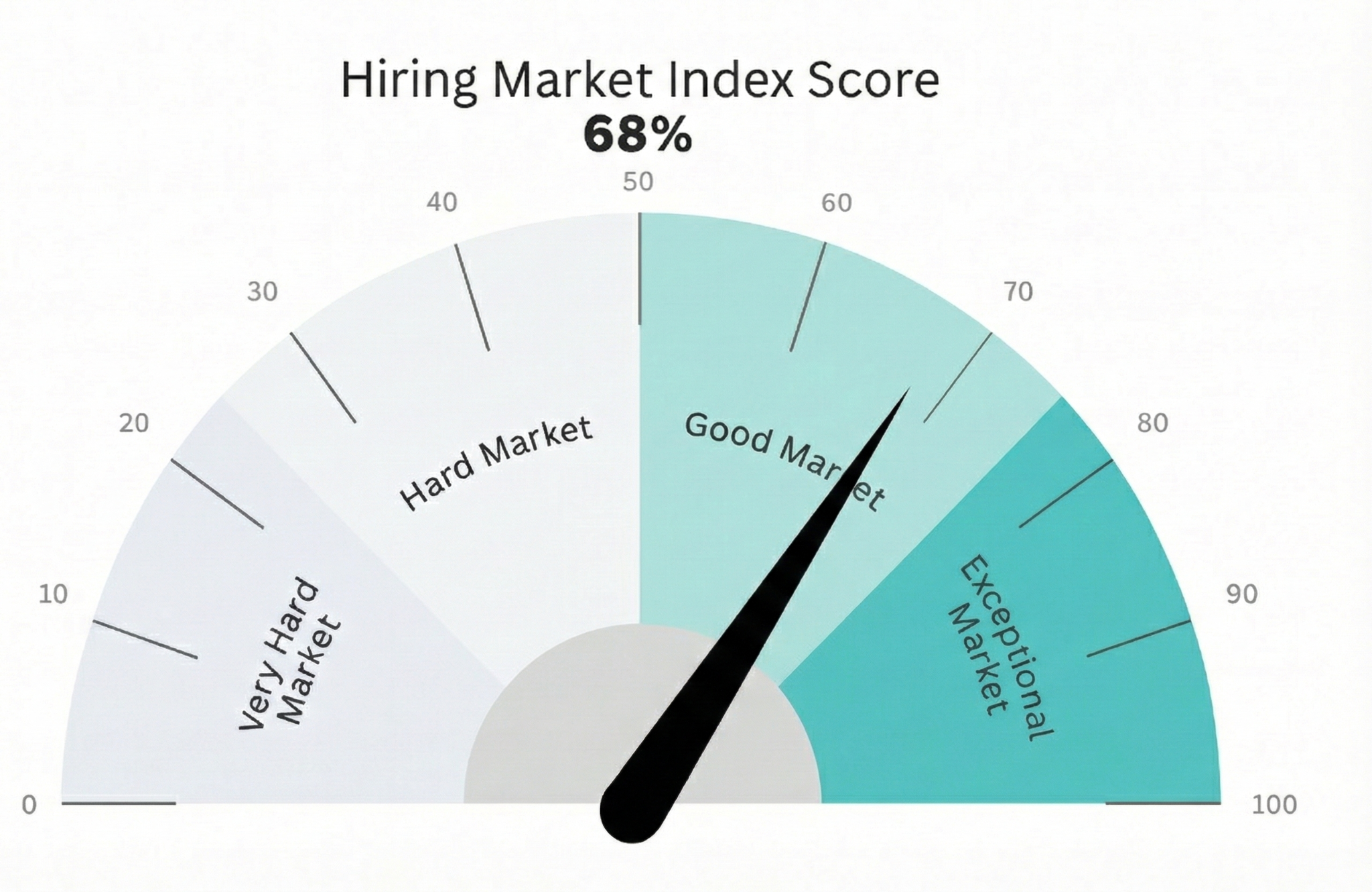
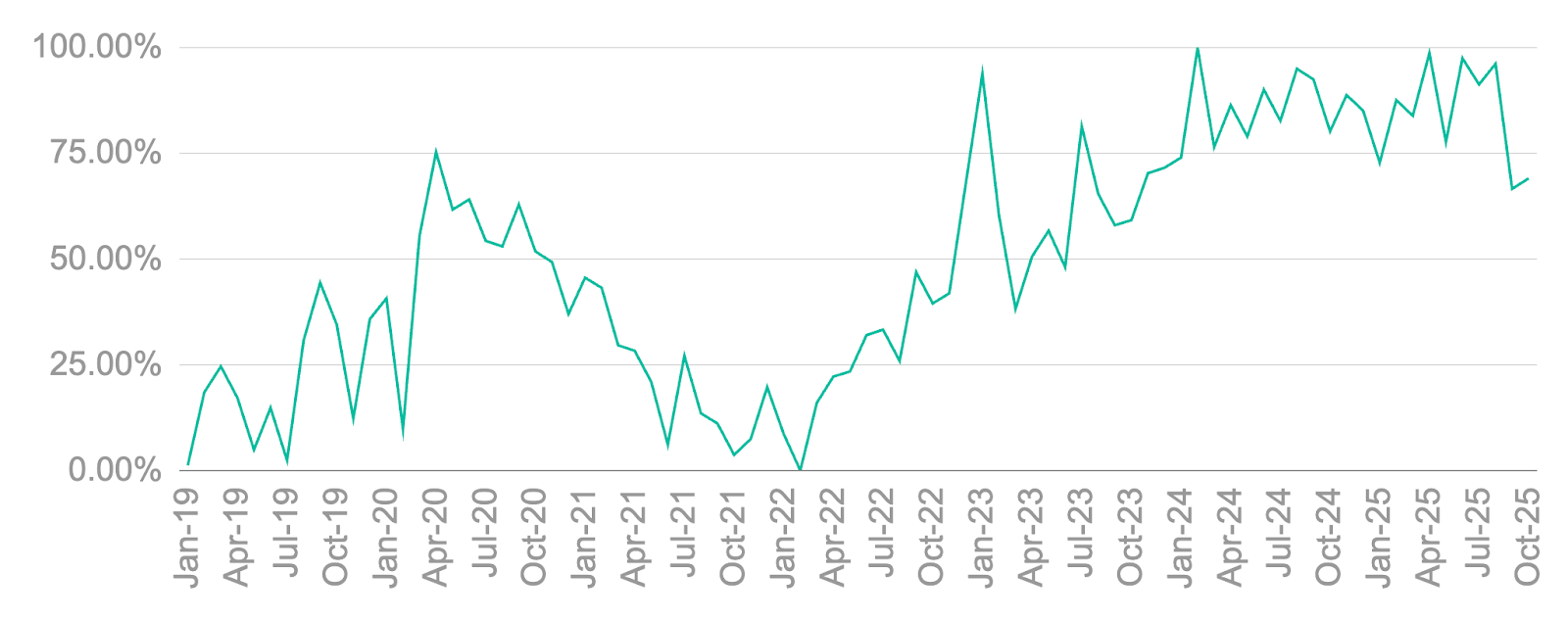
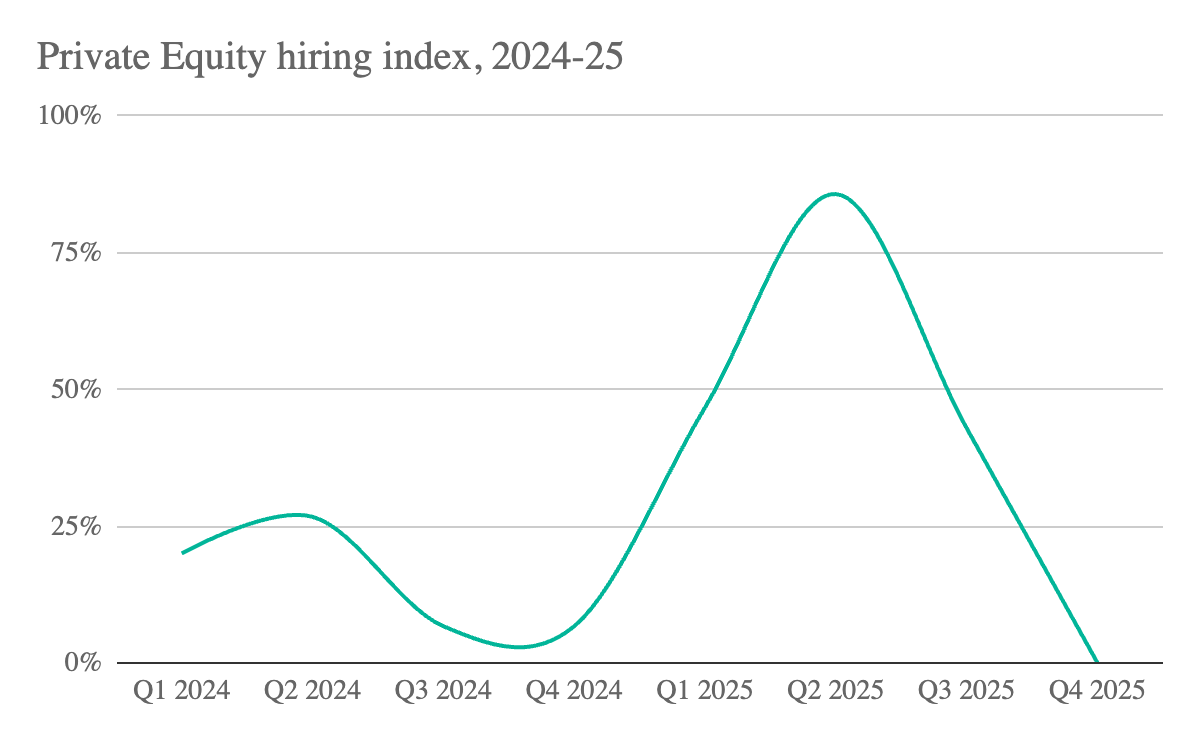
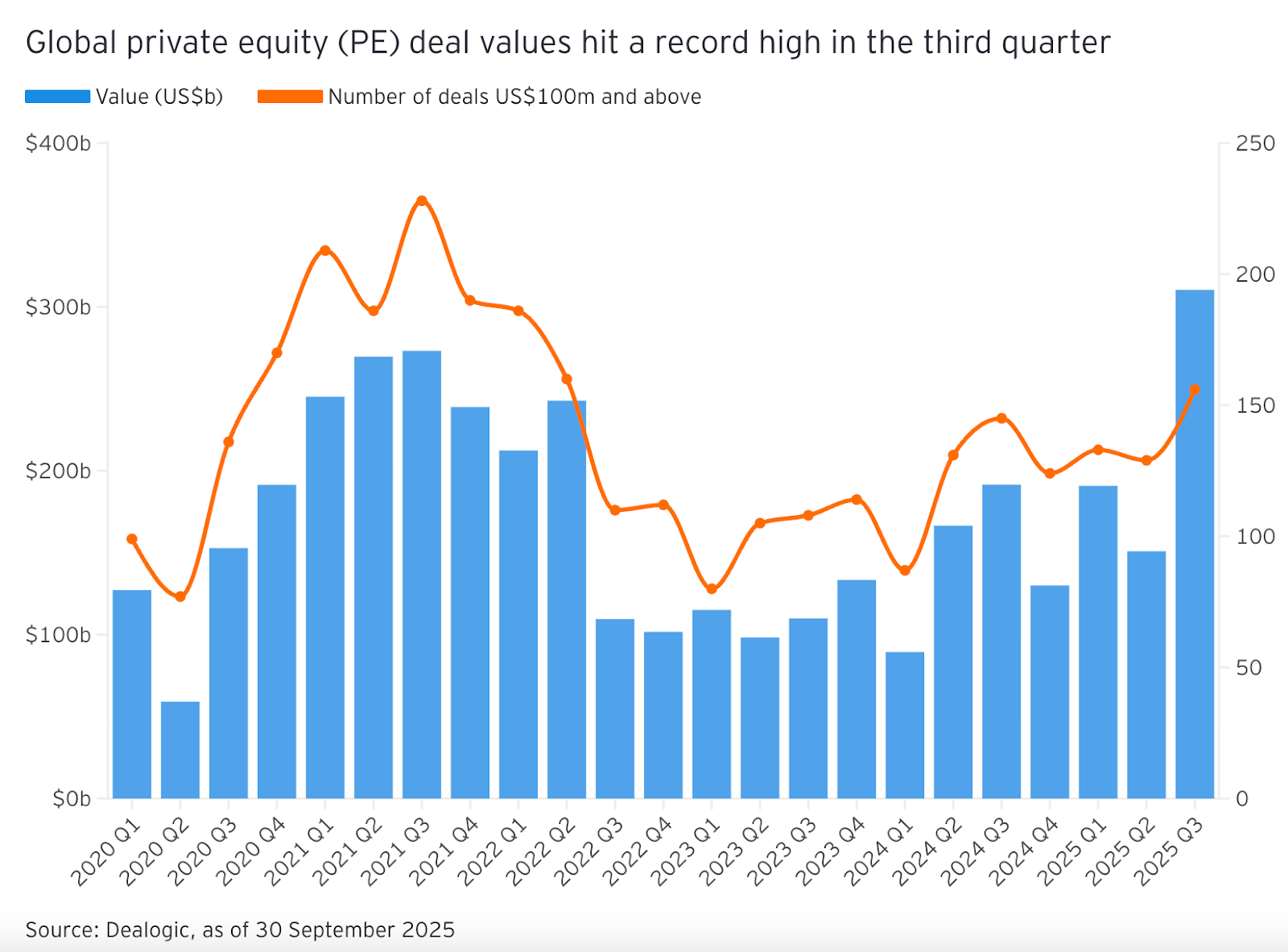
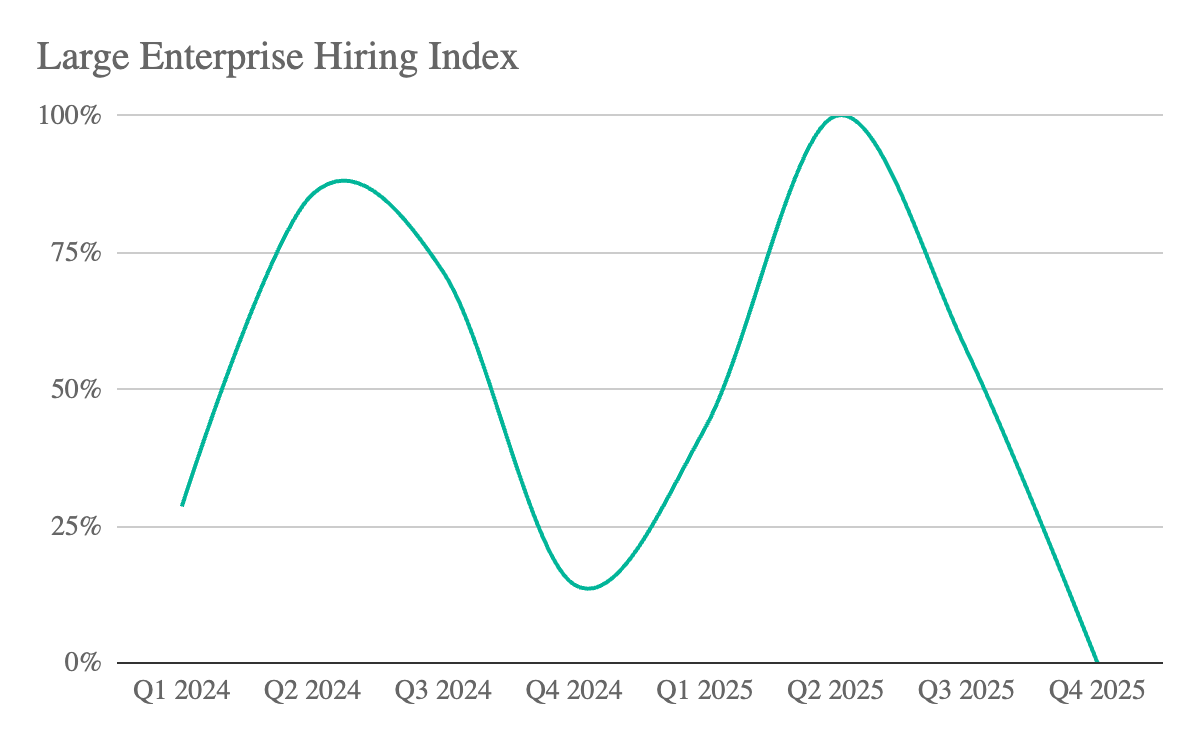
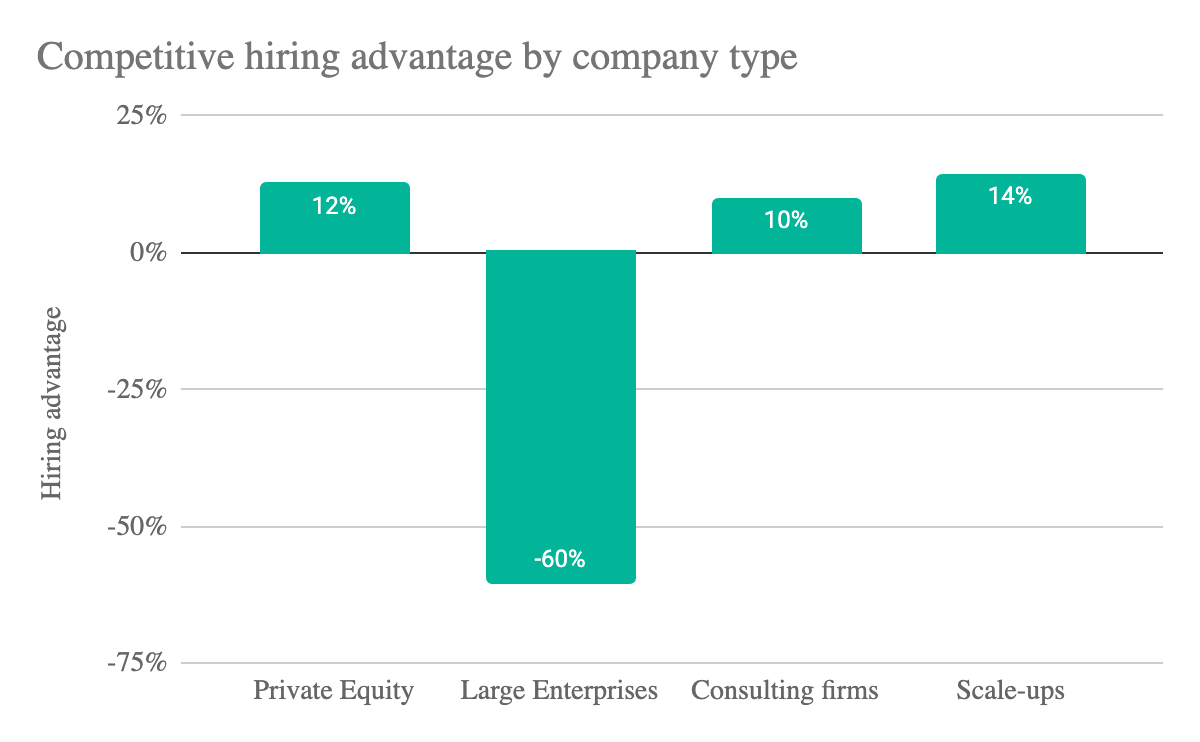
.jpg)

.png)
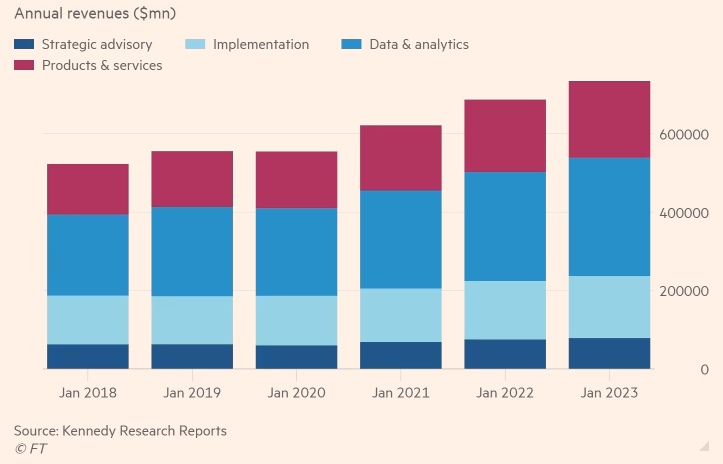
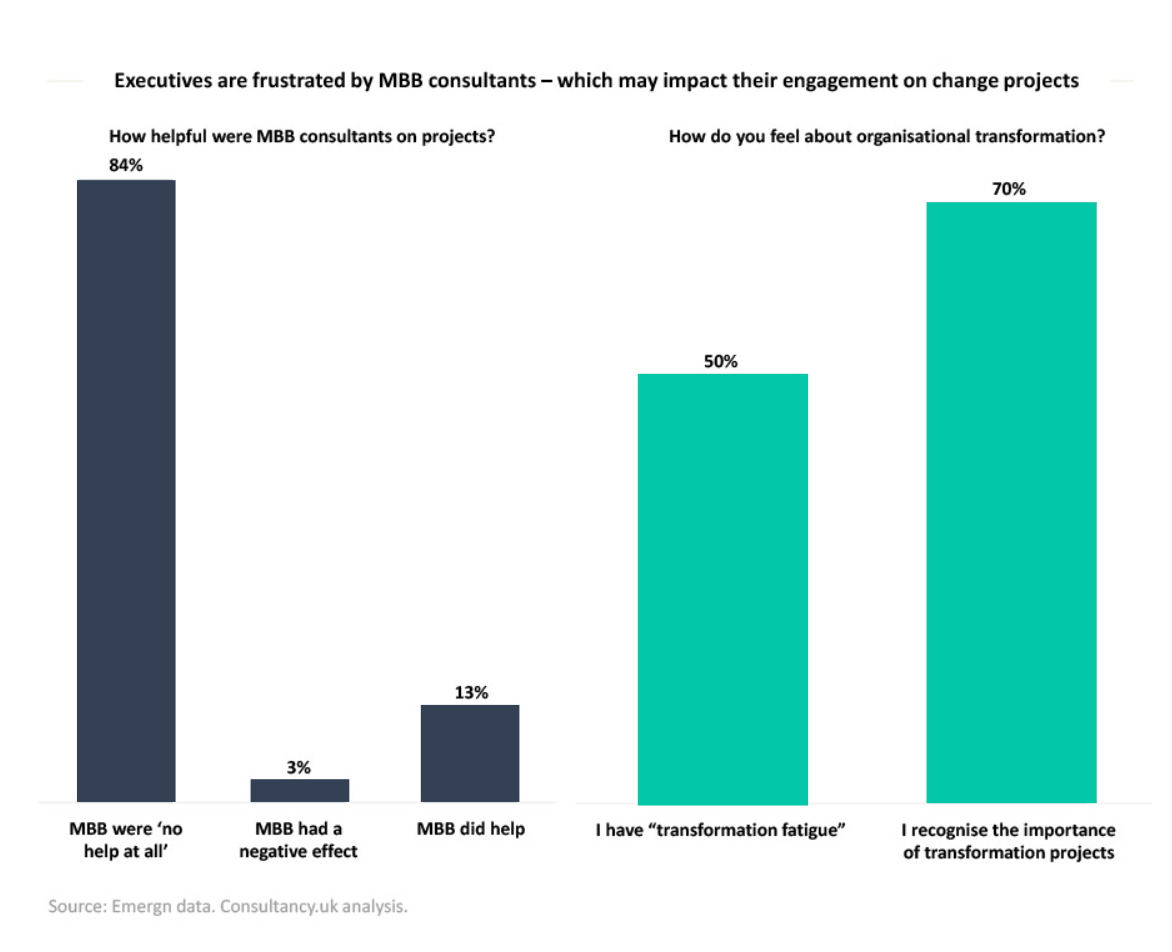
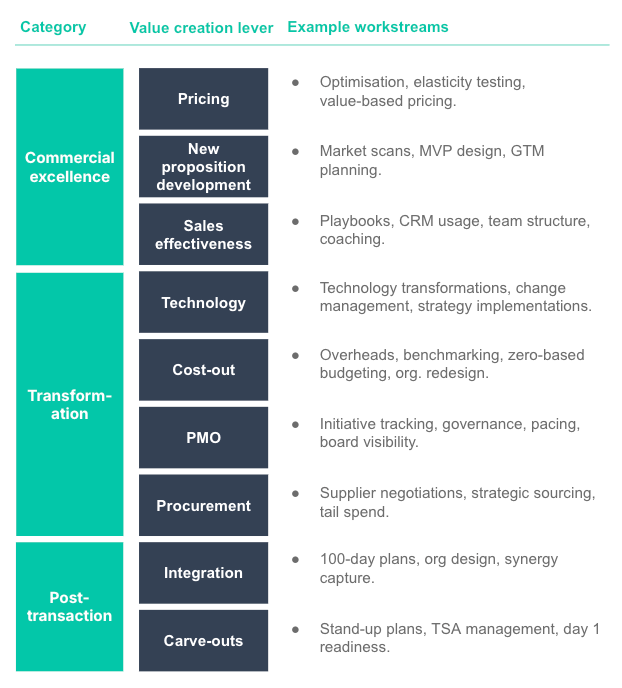

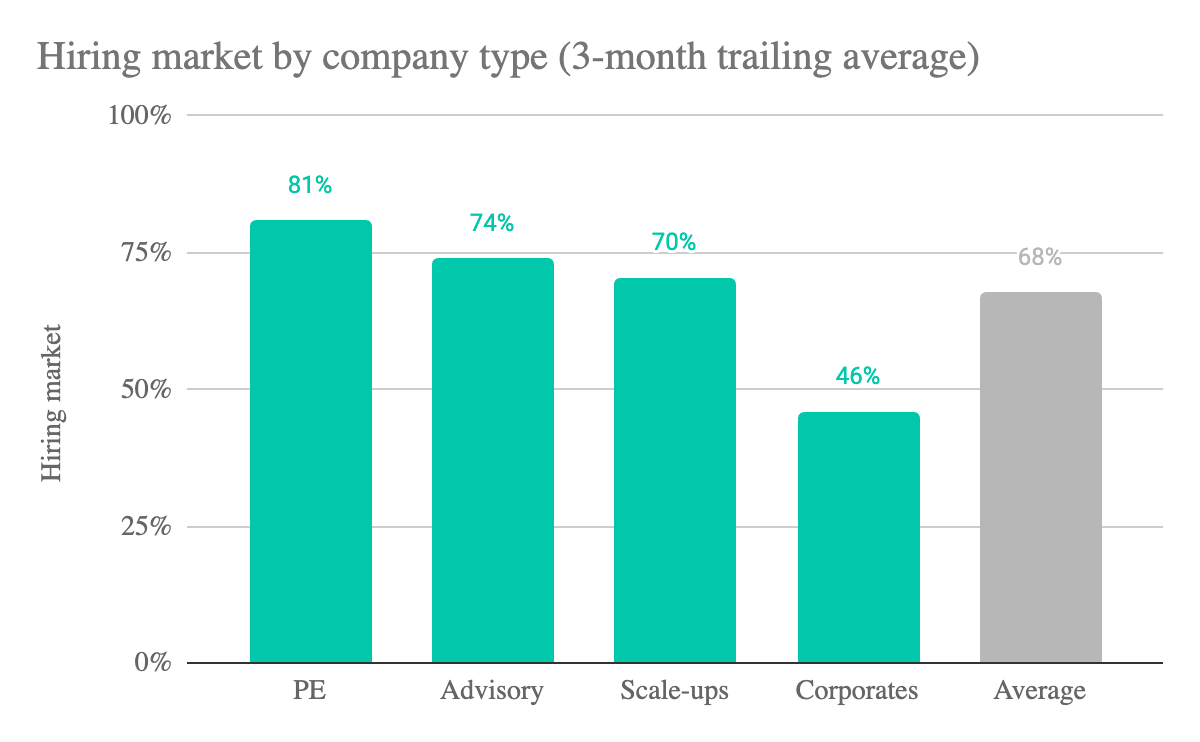
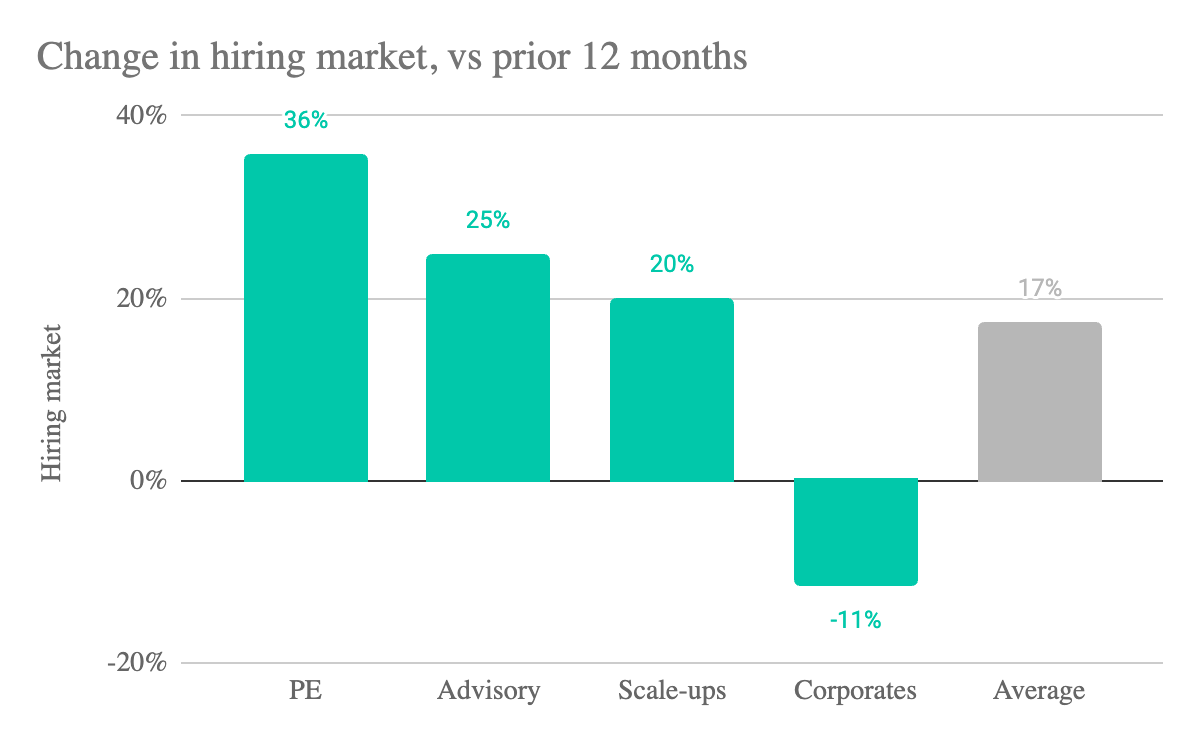


.jpg)
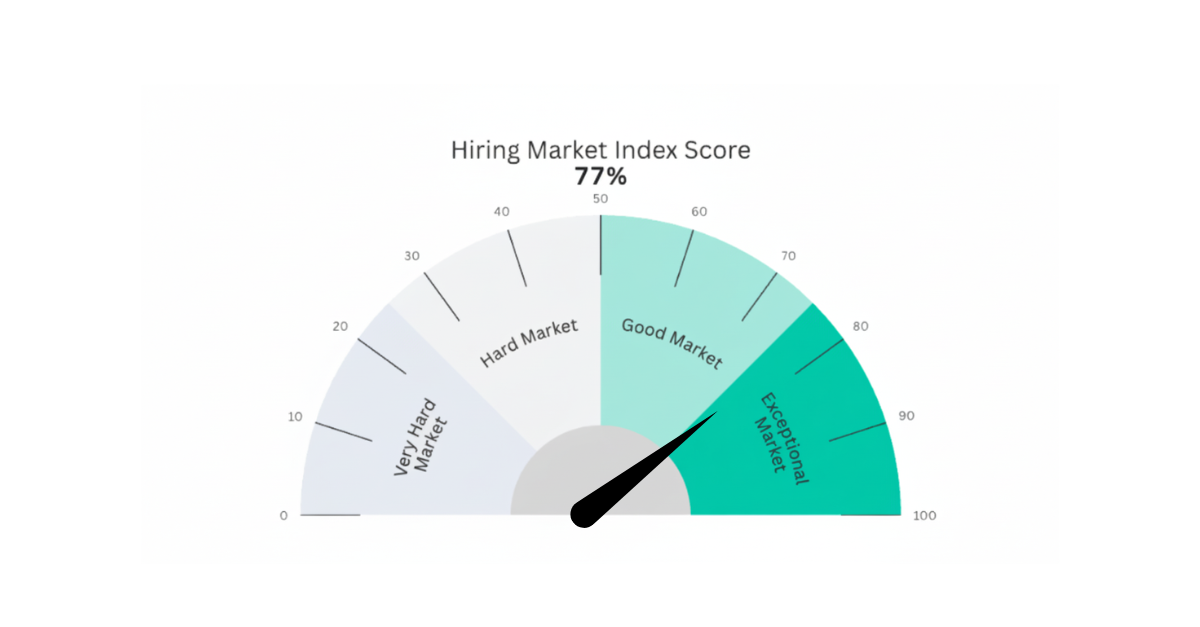
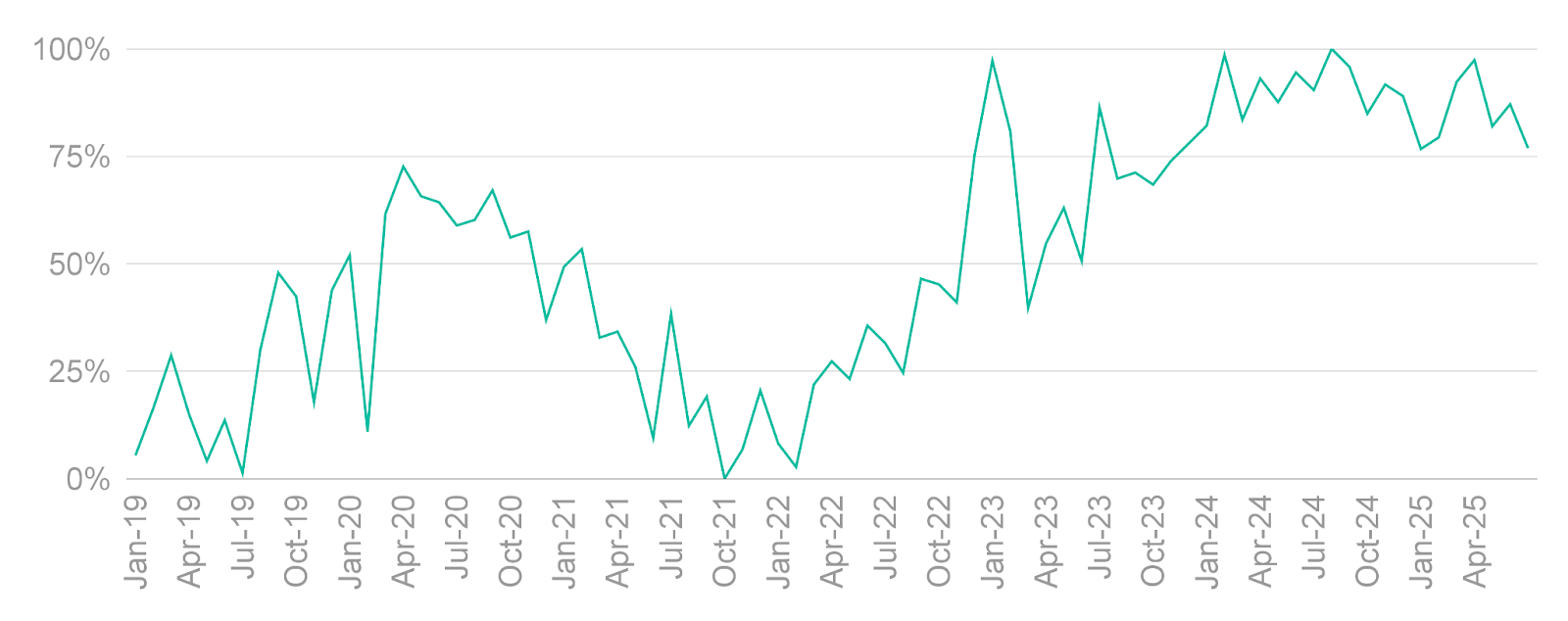
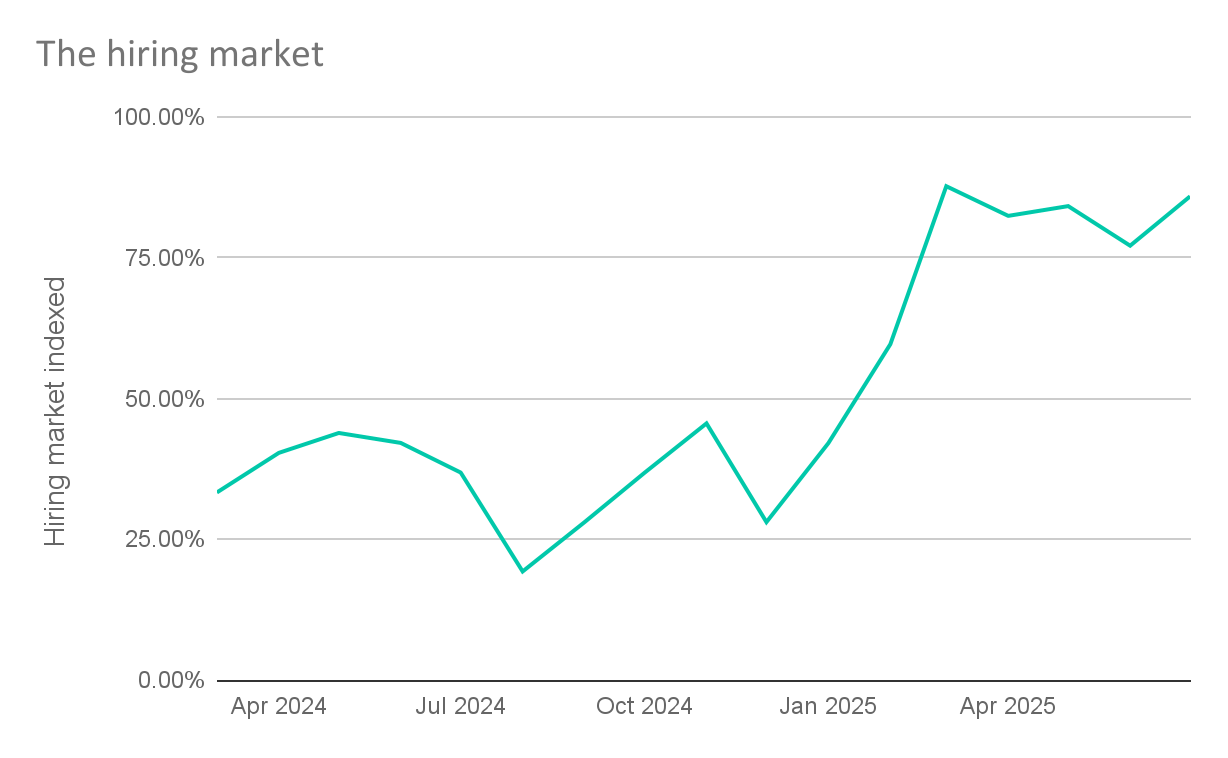



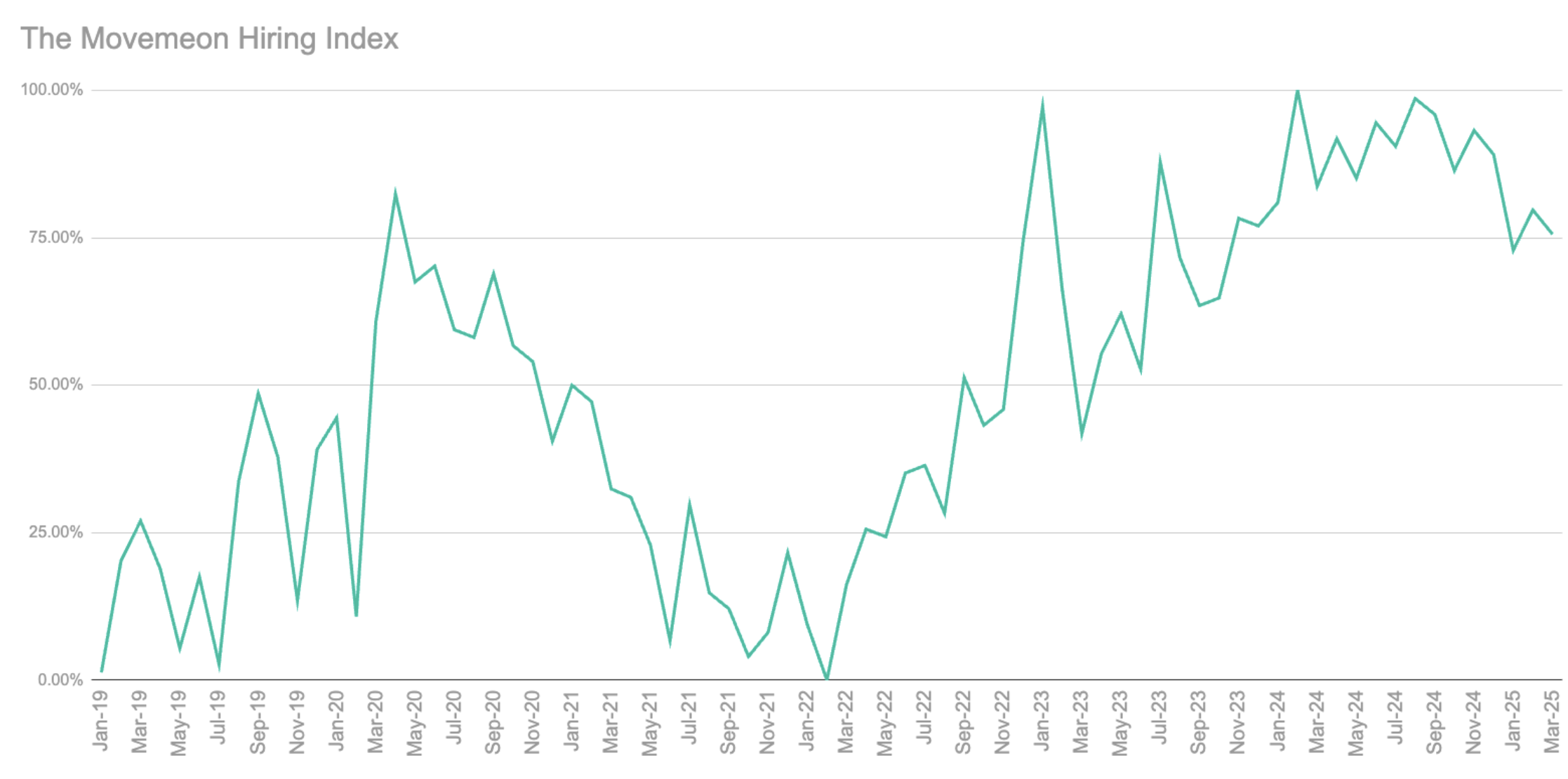



















.jpg)

